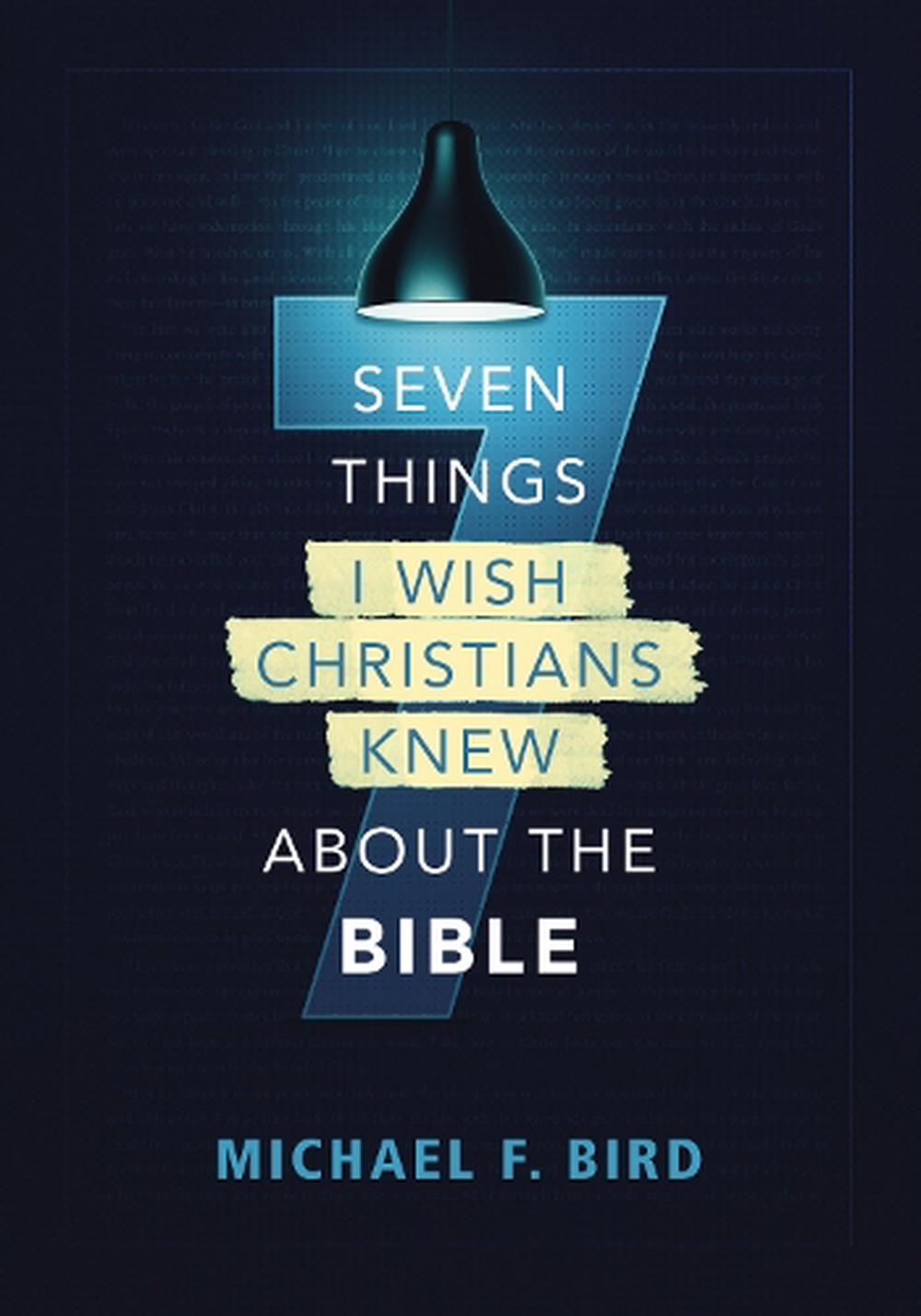
Michael grew up in Brisbane before joining the Army and serving as a paratrooper, intelligence operator, and then chaplains assistant. It was during his time in the military that he came to faith from a non-Christian background, and soon after felt a call to ministry. Michael describes himself as a “biblical theologian” who endeavours to bring together biblical studies and systematic theology. He believes that the purpose of the church is to “gospelize,” that is to preach, promote, and practise the Gospel-story of the Lord Jesus Christ. Remembered by his students for his mix of outlandish humour and intellectual rigor, he makes theology both entertaining and challenging. As an industrious researcher, Michael has written and edited over thirty books in the fields of Septuagint, Historical Jesus, the Gospels, St Paul, Biblical Theology, and Systematic Theology. He also runs a popular blog called Euangelion.
You can follow Mike on Twitter: @mbird12
Seven Things I Wish Christians Knew about the Bible is a short and readable introduction to the Bible–its origins, interpretation, truthfulness, and authority. Bible scholar, prolific author, and Anglican minister Michael Bird helps Christians understand seven important “things” about this unique book. Seven Things presents a clear and understandable evangelical account of the Bible’s inspiration, canonization, significance, and relevance in a way that is irenic and compelling. It is a must-read for any serious Bible reader who desires an informed and mature view of the Bible that will enrich their faith. – From the Publisher


Missio Alliance Comment Policy
The Missio Alliance Writing Collectives exist as a ministry of writing to resource theological practitioners for mission. From our Leading Voices to our regular Writing Team and those invited to publish with us as Community Voices, we are creating a space for thoughtful engagement of critical issues and questions facing the North American Church in God’s mission. This sort of thoughtful engagement is something that we seek to engender not only in our publishing, but in conversations that unfold as a result in the comment section of our articles.
Unfortunately, because of the relational distance introduced by online communication, “thoughtful engagement” and “comment sections” seldom go hand in hand. At the same time, censorship of comments by those who disagree with points made by authors, whose anger or limited perspective taints their words, or who simply feel the need to express their own opinion on a topic without any meaningful engagement with the article or comment in question can mask an important window into the true state of Christian discourse. As such, Missio Alliance sets forth the following suggestions for those who wish to engage in conversation around our writing:
1. Seek to understand the author’s intent.
If you disagree with something the an author said, consider framing your response as, “I hear you as saying _________. Am I understanding you correctly? If so, here’s why I disagree. _____________.
2. Seek to make your own voice heard.
We deeply desire and value the voice and perspective of our readers. However you may react to an article we publish or a fellow commenter, we encourage you to set forth that reaction is the most constructive way possible. Use your voice and perspective to move conversation forward rather than shut it down.
3. Share your story.
One of our favorite tenants is that “an enemy is someone whose story we haven’t heard.” Very often disagreements and rants are the result of people talking past rather than to one another. Everyone’s perspective is intimately bound up with their own stories – their contexts and experiences. We encourage you to couch your comments in whatever aspect of your own story might help others understand where you are coming from.
In view of those suggestions for shaping conversation on our site and in an effort to curate a hospitable space of open conversation, Missio Alliance may delete comments and/or ban users who show no regard for constructive engagement, especially those whose comments are easily construed as trolling, threatening, or abusive.